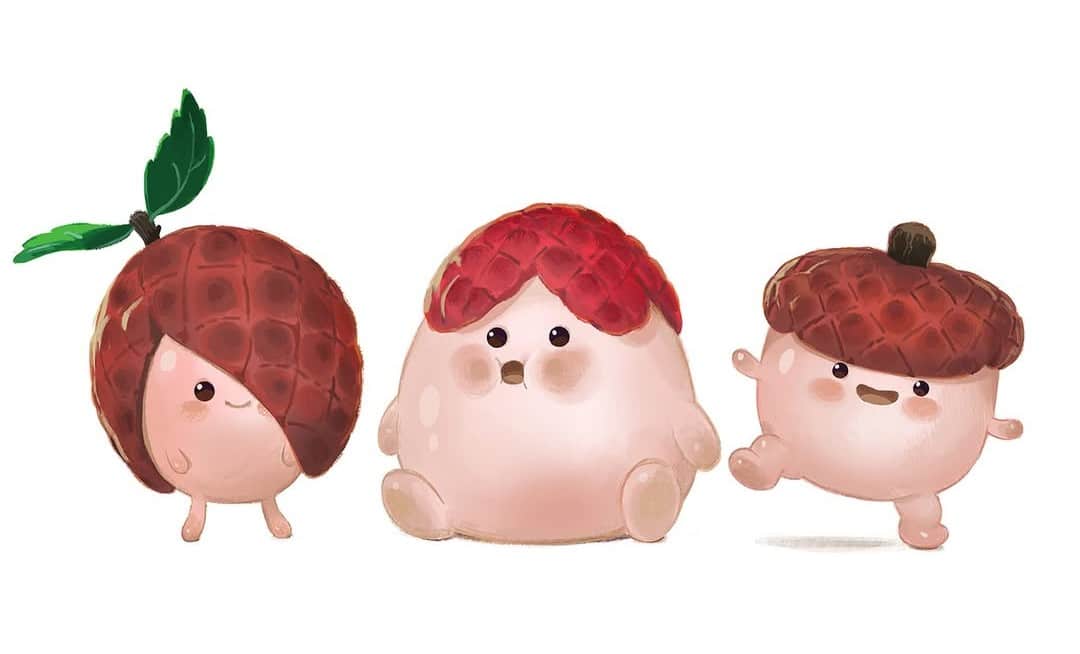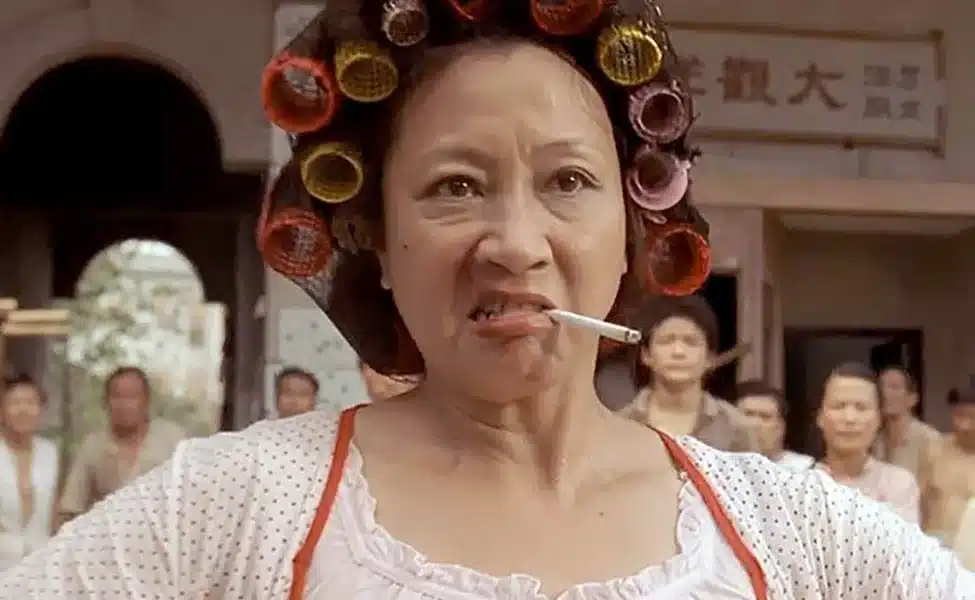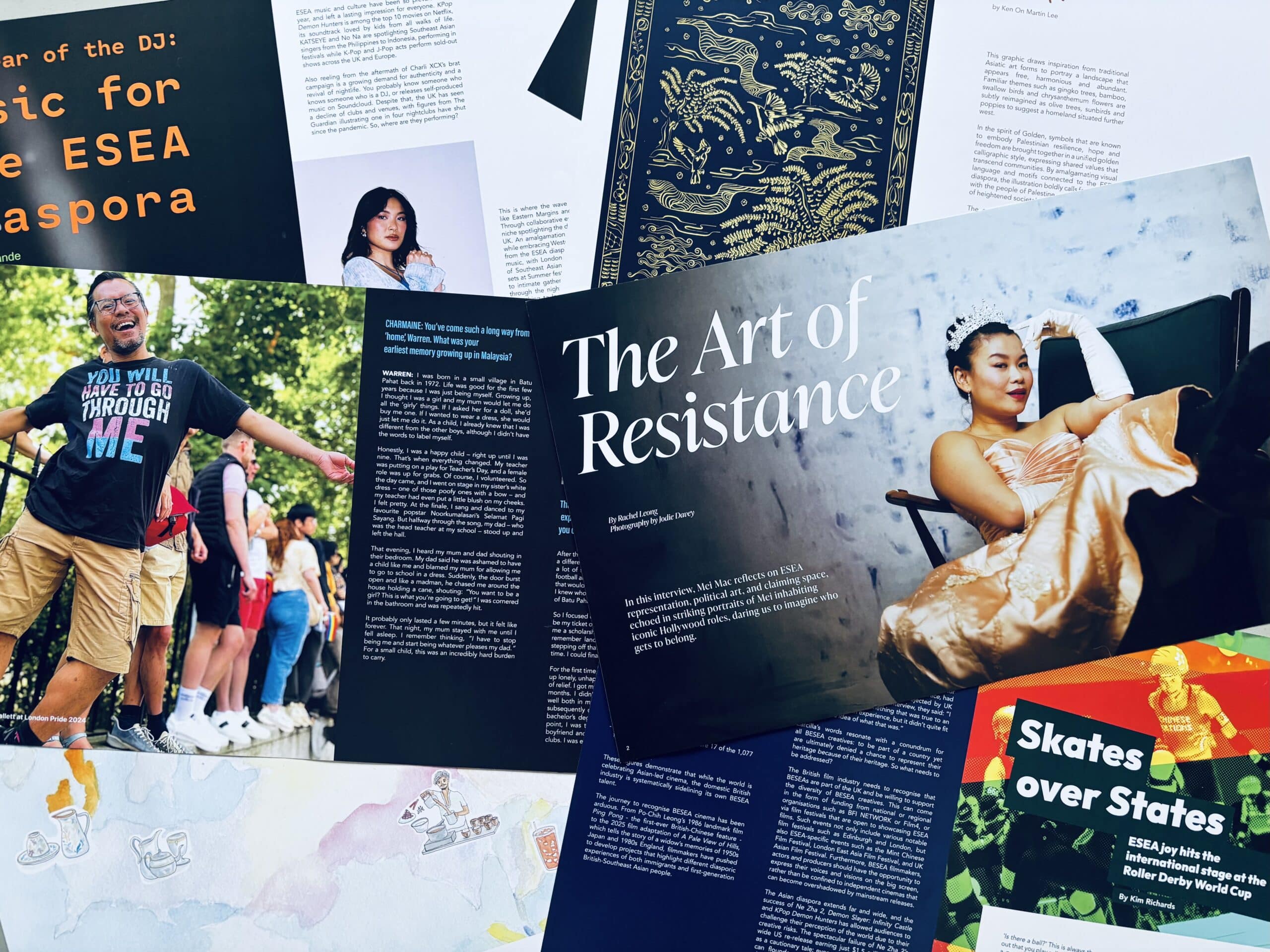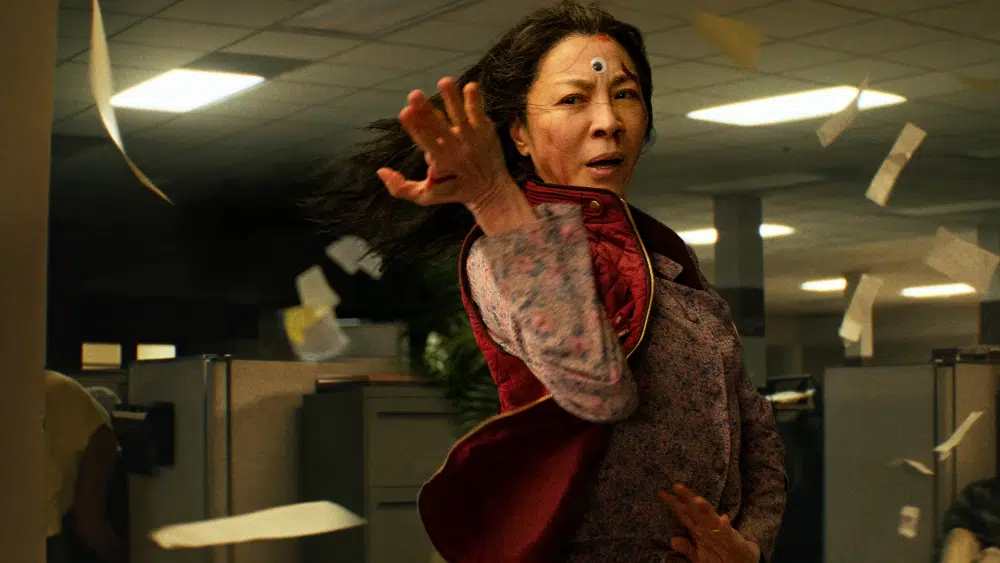Michelle Yeoh has drawn criticism for starring in Lululemon‘s Year of the Dragon Lunar New Year campaign.
The Everything Everywhere All At Once Oscar winner leads the advert, fusing the martial art Wing Chun with well-being. “Spring. Is it a season? A beginning? Or a feeling?” Yeoh ponders in the video clip as she gazes upon the mountains of Jingning and Xiandu.
Dressed in Lululemon’s latest offerings, Yeoh is seen with a team of dancers from the Shenzhen Opera and Dance Theatre gracefully executing martial arts choreography.
“I am delighted to be partnering with Lululemon. Sports have always been an important element of my life, and I am committed to helping more people, especially younger generations, benefit from sport,” Yeoh said about the partnership.
“Wing Chun holds a special place in my heart. Back in 1994, I starred in the movie ‘Wing Chun’, and thirty years later, I’m honored to have the opportunity to collaborate with these professional dancers to re-interpret Wing Chun through the short film Be Spring. This is a concept that resonates with me deeply. Having our own inner spring all year round is our superpower.”
However, commenters were quick to remind the Malaysian actress of Lululemon’s seemingly racist roots. “They must’ve paid her a lot bc lululemon has got to be one of the most racist and fatphobic companies out there,” one commenter wrote.
“That’s a bummer because Lululemon is an awful company and extremely toxic and racist,” said another.
“I am so glad that so many people have commented on this raising the problematic issues of Lululemon. It’s problematic from the beginning .. they called it Lululemon so Asian people can’t pronounce it properly,” commented an AAPI Owned candle company.
Other members of the community expressed support for Yeoh’s campaign. “Having a global brand like Lululemon feature Michelle Yeoh, along with dancers from the Shenzen Opera and Dance Theatre, in an inclusive campaign celebrating Chinese New Year, is a big deal,” wrote Managing Partner Hyphen Capital, Dave Lu on LinkedIn.
“So many of us barely saw any Asians in fashion ad campaigns growing up. Calvin Klein models never looked like us. So it’s exceptionally meaningful to see our cultures finally reflected this way,” he said.
“Those who are quick to criticize her for working with a brand founded by a racist misogynist that left the company in 2013, where is that energy for Adidas which was founded by actual Nazis? Yeoh is not responsible for his ignorant words and is leveraging this powerful platform and shining a light on her culture and heritage. And we are here for it.”
History of Racism
Lululemon has had a long history of racist rhetoric, which dates back to the foundation of the company and even its company name. Speaking to Canada’s National Post Business Magazine, Lululemon founder and CEO Chip Wilson admitted that the brand’s name was concocted because it was “funny to watch [Japanese people] try and say it.”
In a now-removed blog from 2009, Wilson further explained, “It was thought that a Japanese marketing firm would not try to create a North American sounding brand with the letter “L” because the sound does not exist in Japanese phonetics. By including an “L” in the name it was thought the Japanese consumer would find the name innately North American and authentic.”
Lululemon’s controversy didn’t stop there. During the COVID pandemic, a staffer from Luluemon’s design team thought it would be wise to release a ‘Bat Fried Rice’ T-shirt.
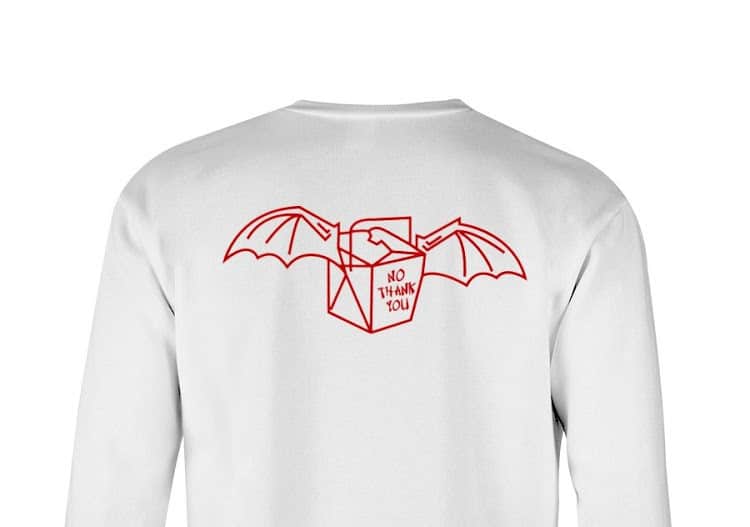
Named ‘Bat Fried Rice’, the white T-shirt featured an image of red chopsticks with bat wings in it and a winged Chinese takeaway box that sported “No Thank You” on it. At the time, one widely believed theory was that Covid-19 was triggered by eating bats in China.
Although the shirt was designed by Jess Sluder, who has no connection with Lululemon, the print was promoted on Instagram by the company’s art director Trevor Fleming. Sluder was selling the shirt for $60 online.
The Canadian sports apparel giant then issued an apology, stating that Fleming is no longer a worker at Lululemon.
Read more: Lululemon apologises after art director promotes racist ‘bat fried rice’ Coronavirus T-shirt
“The T-shirt is not a Lululemon product. We apologise that an employee was affiliated with promoting an offensive T-shirt and we take this very seriously,” the company said.
“The image and the post were inappropriate and inexcusable. We acted immediately, and the person involved is no longer an employee of Lululemon.”
Fleming also apologised saying, “I deeply apologise for putting the URL in my bio. I did not design the T-shirt, nor did I participate in any part of its creation.”
Most recently, Wilson also slammed the company’s “whole diversity and inclusion thing,” stating that it makes the people in the ads look “unhealthy,” “sickly” and “not inspirational,” and that it attracts “certain customers” to the company.
“They’re trying to become like the Gap, everything to everybody,” Wilson said in the interview with Forbes. “And I think the definition of a brand is that you’re not everything to everybody… You’ve got to be clear that you don’t want certain customers coming in.”




